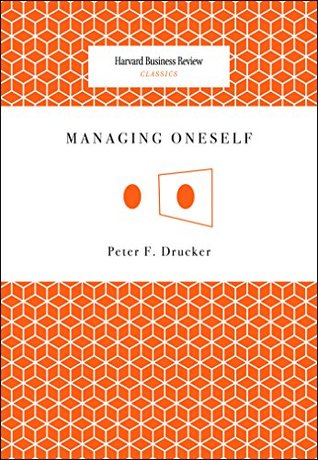More on this book
Community
Kindle Notes & Highlights
Read between
May 15 - May 15, 2022
We will have to learn to develop ourselves. We will have to place ourselves where we can make the greatest contribution. And we will have to stay mentally alert and engaged during a 50-year working life, which means knowing how and when to change the work we do.
Most people think they know what they are good at. They are usually wrong. More often, people know what they are not good at—and even then more people
are wrong than right. And yet, a person can perform only from strength. One cannot build performance on weaknesses, let alone on something one cannot do at all.
We need to know our strengths in order to know where we belong.
The only way to discover your strengths is through feedback analysis. Whenever you make a key decision or take a key action, write down what you expect will happen. Nine or 12 months later, compare the actual results with your expectations.
Several implications for action follow from feedback analysis. First and foremost, concentrate on your strengths. Put yourself where your strengths can produce results.
Second, work on improving your strengths. Analysis will rapidly show where you need to improve skills or acquire new ones. It will also show the gaps in your knowledge—and those can usually be filled.
Third, discover where your intellectual arrogance is causing disabling ignorance and overcome it. Far too many people—especially people with great expertise in one area—are contemptuous of knowledge in other areas o...
This highlight has been truncated due to consecutive passage length restrictions.
But taking pride in such ignorance is self-defeating.
It is equally essential to remedy your bad habits—the things you do or fail to do that inhibit your effectiveness and performance. Such habits will quickly show up in the feedback.
Comparing your expectations with your results also indicates what not to do. We all have a vast number of areas in which we have no talent or skill and little chance of becoming even mediocre. In those areas a person—and especially a knowledge worker—should not take on work, jobs, and assignments. One should waste as little effort as possible on improving areas of low competence. It takes far more energy and work to improve from incompetence to mediocrity than it takes to improve from first-rate performance to excellence. And yet most people—especially most teachers and most
...more
Am I a reader or a listener?
How do I learn?
There are people, like Churchill, who learn by writing. Some people learn by taking copious notes.
Some people learn by doing. Others learn by hearing themselves talk.
To manage yourself effectively, you also have to ask, Do I work well with people, or am I a loner? And if you do work well with people, you then must ask, In what relationship?
Some people work best as team members. Others work best alone. Some are exceptionally talented as coaches and mentors; others are simply incompetent as mentors.
Do I produce results as a decision maker or as an adviser?
A great many people perform best as advisers but cannot take the burden and pressure of making the decision. A good many other people, by contrast, need an adviser to force themselves to think; then they can make decision...
This highlight has been truncated due to consecutive passage length restrictions.
Do I perform well under stress, or do I need a highly
structured and predictable environment? Do I work best in a big organization or a small one?
The conclusion bears repeating: Do not try to change yourself—you are unlikely to succeed. But work hard to improve the way you perform. And try not to take on work you cannot perform or will only perform poorly.
To be able to manage yourself, you finally have to ask, What are my values? This is not a question of ethics. With respect to ethics, the rules are the same for everybody, and the test is a simple one. I call it the “mirror test.”
Ethics requires that you ask yourself, What kind of person do I want to see in the mirror in the morning?
What is ethical behavior in one kind of organization or situation is ethical behavior in another. But ethics is only part of a value system—especially of an organization’s value system.
To be effective in an organization, a person’s values must be compatible with the organization’s values. They do not need to be the same, but they must be close enough to coexist. Otherwise, the person will not only be frustrated but also will not produce results.
A person’s strengths and the way that person performs rarely conflict; the two are complementary. But there is sometimes a conflict between a person’s values and his or her strengths. What one does well—even very well and successfully—may not fit with one’s value system. In that case, the work may not appear to be worth devoting one’s life to (or even a substantial portion thereof ).
People, I realized, were what I valued, and I saw no point in being the richest man in the cemetery. I had no money and no other job prospects. Despite the continuing Depression, I quit—and it was the right thing to do. Values, in other words, are and should be the ultimate test.


